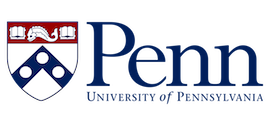 Poetry Audio Lab: Modernism & Sound Studies
Poetry Audio Lab: Modernism & Sound Studies
Fall 2018
Tuesday/Thursday, 4:30-6:00pm
Instructor: Chris Mustazza
Office Hours: W 12-1, 5-6, and by appointment
Course Description
What does Modern poetry sound like if we approach it through sound recordings of poets reading their own work? What kind of works that are primarily sound-based (e.g. vaudeville monologues) would have to be included? Which poets would not be audible due to their lack of access to (or interest in) making recordings of their work? The course takes up this provocation by organizing itself around listening exercises, making extensive use of the PennSound archive. The primary goal of the course will be to provide students with the tools and resources to do critical work that focuses on poetry as sound.
Many of the course assignments will center hands-on work with sound files: recording podcast discussions of poetic readings, making audio remixes and collages, and setting poems to music, to name a few. No prior experience with sound editing is necessary—just an interest in experimenting with sound.
We will learn about several Sound Studies methodologies for analyzing these poetic performances; they include Close Listening, Distant Listening, Machine-Aided Close Listening, and media archaeology (the study of how older media, in this case wax cylinders and shellac 78rpm records, functioned socially, politically, and aesthetically). The aim will be for you to be able to discuss poetic performances with careful attention to the literary historical, biographical, aesthetic, and medial frames that constitute these historical objects.
You will notice that the title of the course does not contain the word “American,” even though the course focuses on the development of modernism in America. This is because the development of poetry in America during this period of global poetic innovation must be heard in an international context. So while the course focuses on American poetry, we will listen carefully to how modernism vibrated in transatlantic sympathy, as well as through the Americas. Too, you will notice that the course includes works outside the period of modernism (roughly 1890-1945). To fully apprehend the poetic innovations taking place during this time, it is necessary to study the earlier periods that these radically experimental poets are reacting to, as well as how the works of this period mark important inheritances (and not just positive ones) for contemporary poets.
The course is a Junior Research Seminar, which means it focuses on research methods. Students will learn how to treat sound recordings as the objects of serious inquiry, including researching their provenances, reception histories, and interfaces with the poets’ stated poetics.

